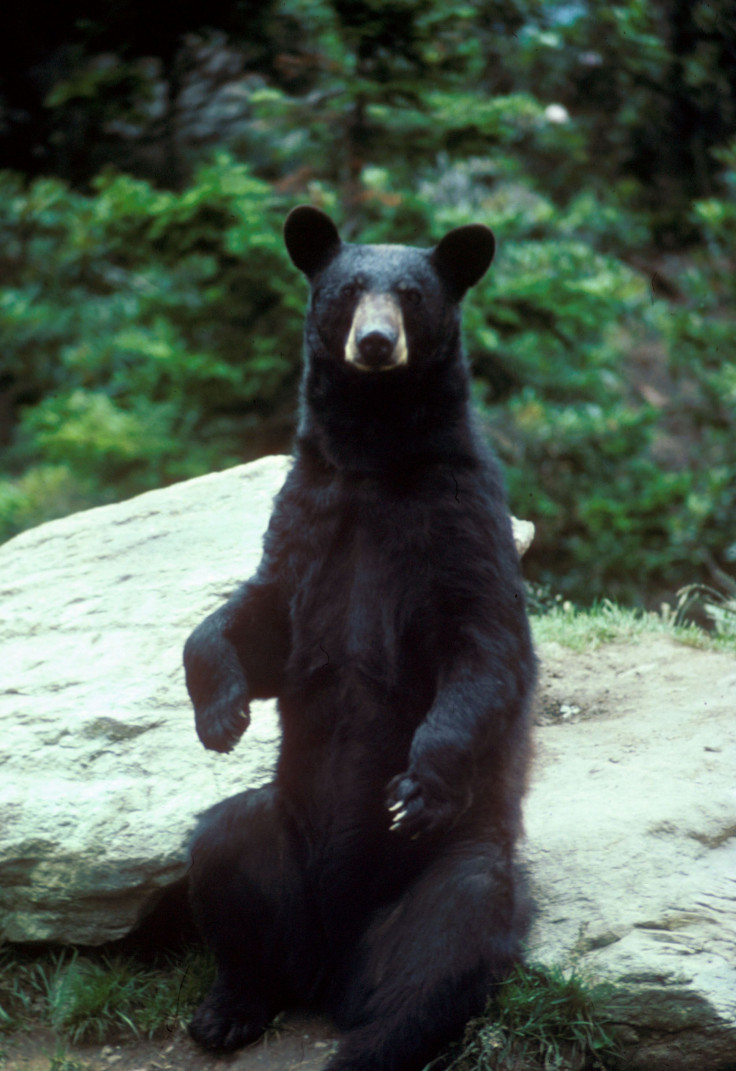Are Black Bears Going Vegan? Yosemite Park Bears Stealing 63% Fewer Picnic Baskets In Favor Of A Natural Diet. Here's Why.

Yogi Bear, a cartoon critter known for his weakness for human food, was based on the real-life habits of will bears, many of whom preferred processed human food found in trash sites to their species' natural diet of vegetables and insects. But despite an ever increasing presence of humans in Yosemite National Park, real-life bears are giving up human food for a more natural diet, according to newly released scientific research.
The March issue of the journal Frontiers in Ecology and the Environment reports that the proportion of human-derived food in the diets of Yosemite black bears has fallen by 63 percent over the last century, despite a big increase in the number of humans visiting the park.
Yosemite, a 1,170-square-mile wilderness area in California’s Sierra Nevada mountain chain and renowned for its dramatic granite landscapes, is home to hundreds of American black bears. Since the park opened in 1890, bears and humans have progressively shared closer and closer quarters, inevitably leading to curious Yogis sniffing out and munching on campers’ food.
Researchers at the University of California, Santa Cruz, tracked the diets of nearly 200 bears, some of which were killed nearly 100 years ago. They analyzed chemical isotopes taken from bone and hair samples to determine how much of a bear’s diet consisted of human-derived food. Their study, published in the March issue of the journal Frontiers in Ecology and the Environment, found that Yosemite’s black bears are eating far less human fare now than at any time since the park opened, even though the number of annual visitors to the park has jumped.
"What we found was that the diets of bears changed dramatically after 1999, when the park got funding to implement a proactive management strategy to keep human food off the landscape," Jack Hopkins, a wildlife ecologist and lead author of the study, said in a statement. "This suggests that the bear's diets are likely going back to their natural diet."
For many years, park rangers deliberately dumped human food waste in designated areas where park visitors could watch bears feeding. The bears developed a taste for human food, which they even passed on to their young. Bears that are dependent on human food can often become aggressive, according to park rangers. Oftentimes, the most belligerent bears have to be put down.
Hopkins and his team were able to determine the proportion of human-derived food in the bears’ diet by looking at the natural variability of rare isotopes of elements such as carbon and nitrogen. These isotope ratios are different in wild plants and animals than in processed human foods.
Based on their chemical forensics, researchers discovered that between 1915 and 1919, Yosemite black bears’ diets were 13 percent human food. A decade later, the proportion of human food consumed by black bears was 27 percent. From 1975 to 1985, that figure had jumped to 35 percent. But in the early 2000s, the percentage of human food in the bears’ diets decreased to just 13 percent.
Were the bears turning vegan by choice? Well, not really. Researchers credit stricter bear management strategies, implemented in the late 1990s following a record-breaking spate of bear encounters, with the notable change in bears’ diets.
Since then, campers are required to keep their food and other products, including toothpaste, locked up and out of the bears’ reach. Visitors can face steep penalties for failing to comply with food regulations in the park. "This study shows the power of using museum specimens and archived historical material to reconstruct the ecology of a species and to answer pressing management questions," Koch said. "The remarkable thing is that the bears that eat human food are now back to the same level of dumpster diving as in 1915, despite the fact that there are now millions of visitors in Yosemite every year and presumably a lot more garbage."
© Copyright IBTimes 2025. All rights reserved.






















